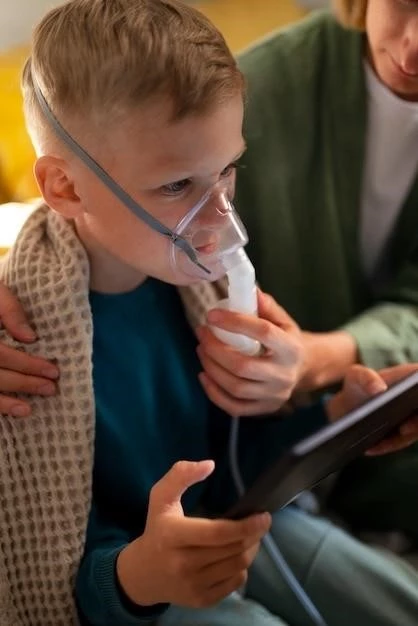Symptoms of 5p Minus Syndrome
Common physical symptoms include low muscle tone‚ feeding difficulties‚ and distinct facial features․
Physical Symptoms
Physical symptoms of 5p Minus Syndrome may manifest as low muscle tone‚ feeding difficulties‚ distinct facial features such as a small head‚ round face‚ and widely spaced eyes‚ as well as potential heart defects and hernias․
Cognitive and Developmental Symptoms
Cognitive and developmental symptoms of 5p Minus Syndrome may include intellectual disability‚ delays in speech and language development‚ challenges with social interactions‚ behavioral issues such as anxiety or attention deficits‚ and potential learning difficulties requiring specialized educational support․
Treatment Options for 5p Minus Syndrome
Management may involve early interventions and medical treatments tailored to address specific symptoms․
Early Intervention Programs
Early intervention programs for 5p Minus Syndrome involve a multidisciplinary approach‚ including physical‚ speech‚ and occupational therapies to address developmental delays‚ educational support tailored to individual needs‚ and family counseling to provide guidance and support․
Medical Interventions
Medical interventions for 5p Minus Syndrome may include surgeries to address heart defects or hernias‚ medication management for associated conditions like seizures or gastrointestinal issues‚ and regular monitoring by healthcare professionals to ensure comprehensive care and symptom management․
Causes of 5p Minus Syndrome
5p Minus Syndrome is primarily caused by a deletion on the short arm of chromosome 5‚ known as 5p-․
Chromosomal Abnormality
The chromosomal abnormality in 5p Minus Syndrome arises from a deletion of a small portion of the short arm of chromosome 5‚ specifically at the location 5p15․2․ This deletion is typically sporadic and occurs randomly‚ leading to the characteristic features and symptoms associated with the syndrome․
Genetic Inheritance
5p Minus Syndrome is typically not inherited and occurs sporadically due to a de novo (new) deletion on chromosome 5․ In rare cases where a parent carries a balanced translocation involving chromosome 5‚ there may be a higher risk of passing on the deletion to offspring‚ resulting in the syndrome․
Developmental Milestones in 5p Minus Syndrome
Children with 5p Minus Syndrome may reach developmental milestones at a varied pace compared to typical development․
Motor Skills
Children with 5p Minus Syndrome may experience delays in developing motor skills‚ including sitting up‚ crawling‚ walking‚ and coordination․ Physical therapy can help improve muscle strength‚ coordination‚ and overall motor function in individuals with the syndrome․
Communication Skills
Individuals with 5p Minus Syndrome may face challenges in speech and language development‚ such as delayed speech‚ difficulty with articulation‚ and challenges in expressive and receptive language skills․ Speech therapy and alternative communication methods like sign language or augmentative communication devices can help improve communication abilities and enhance social interactions․

Managing Behavioral Challenges in 5p Minus Syndrome
Behavioral challenges in 5p Minus Syndrome may require behavioral therapy and medication interventions․
Behavioral Therapy
Behavioral therapy plays a crucial role in addressing behavioral challenges in individuals with 5p Minus Syndrome․ Strategies may include positive reinforcement‚ social skills training‚ and cognitive-behavioral techniques to manage behaviors such as anxiety‚ aggression‚ and repetitive behaviors‚ promoting overall well-being and improved social interactions․
Medication
Medication can be utilized to manage specific symptoms of 5p Minus Syndrome‚ such as seizures‚ gastrointestinal issues‚ attention deficits‚ or anxiety․ An individualized treatment plan‚ in collaboration with healthcare providers‚ may incorporate medications to address these challenges effectively and improve overall quality of life․
Educational Support for Individuals with 5p Minus Syndrome
Individuals may benefit from Individualized Education Plans (IEPs) and assistive technology in educational settings․
Individualized Education Plans (IEPs)
Individualized Education Plans (IEPs) are tailored educational programs designed to meet the unique learning needs of individuals with 5p Minus Syndrome․ These plans outline specific goals‚ accommodations‚ and support services to enhance academic progress‚ address developmental challenges‚ and promote overall educational success in a structured and individualized manner․
Assistive Technology
Assistive technology tools and devices‚ such as communication aids‚ adaptive software‚ and mobility aids‚ can support individuals with 5p Minus Syndrome in various aspects of their education‚ communication‚ and daily activities․ These technologies are designed to enhance independence‚ facilitate learning‚ and improve overall quality of life by overcoming specific challenges associated with the syndrome․
Research Advances in 5p Minus Syndrome
Ongoing genetic studies and clinical trials contribute to the understanding and treatment of 5p Minus Syndrome․
Genetic Studies
Current genetic studies focus on further elucidating the specific genes and mechanisms involved in 5p Minus Syndrome‚ leading to potential breakthroughs in diagnosis‚ prognosis‚ and targeted treatments tailored to the underlying genetic factors․ These studies play a crucial role in advancing our knowledge of the syndrome and improving outcomes for affected individuals through precision medicine approaches․
Clinical Trials
Clinical trials involving novel treatments and interventions are essential in evaluating the efficacy and safety of potential therapies for individuals with 5p Minus Syndrome․ These trials aim to advance medical knowledge‚ refine existing treatments‚ and explore innovative approaches to address the symptoms and challenges associated with the condition․ Participation in clinical trials can offer affected individuals access to cutting-edge therapies and contribute to the advancement of medical care for 5p Minus Syndrome․
Supportive Services for Families Affected by 5p Minus Syndrome
Support groups and respite care offer valuable assistance and comfort to families impacted by 5p Minus Syndrome․
Support Groups
Support groups provide families of individuals with 5p Minus Syndrome an invaluable network for sharing experiences‚ information‚ and emotional support․ These groups offer a sense of community‚ understanding‚ and resources to help families navigate the challenges associated with the syndrome‚ fostering a supportive environment for parents and caregivers to connect‚ learn‚ and advocate for their loved ones․
Respite Care
Respite care services offer temporary relief and support to families caring for individuals with 5p Minus Syndrome․ These services provide caregivers with a much-needed break to attend to their own needs‚ reducing stress and preventing burnout while ensuring continuous care for their loved ones․ Respite care programs can help families maintain balance and well-being‚ enhancing the overall quality of life for both caregivers and individuals with the syndrome․
